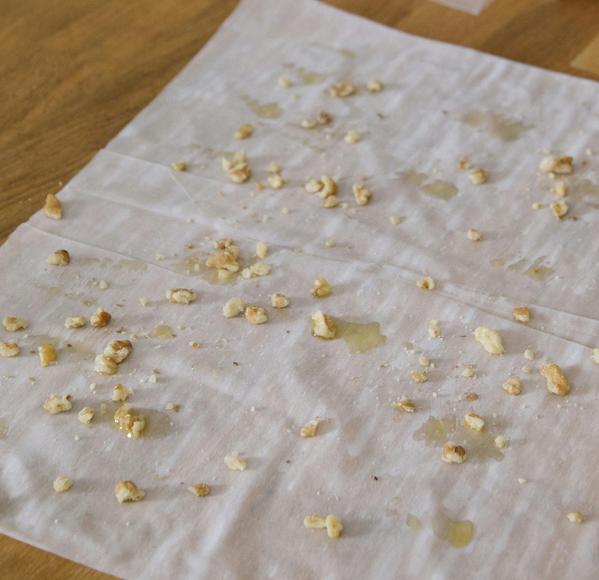Breadcrumbing… Yourself?

Most people think breadcrumbing is only something that happens in dating or relationships.
You know the pattern—someone gives you just enough attention to keep you interested, but never enough to move things forward.
A text here. A call there. A vague promise. It’s not closeness. It’s not commitment. It’s crumbs.
And here’s what we rarely stop to notice—we do the exact same thing to ourselves all the time.
Today I want to talk about breadcrumbing inward. How we give ourselves just enough to get by—but not enough to create the life, the health, the relationships we actually want.
And most importantly, how those little crumbs condition our inner state.
Because every action, every habit, every follow-through—or lack of it—is training your nervous system. Whether you realize it or not.
Breadcrumbing in Relationships and Turning It Inward
It’s easier to see breadcrumbing in relationships first. Someone doesn’t vanish completely—they give just enough. A text, a call, a compliment, a vague plan that never materializes. It’s not nourishing, but it’s enough to keep you hoping.
And what’s trained in you? Doubt. Longing. The ache of waiting for something that never really comes.
Now flip it inward. That same dynamic shows up inside you. You say you’ll work out tomorrow, but don’t. You commit to eating better, then slide back. You meditate once, journal once, then stop when it gets inconvenient.
You feed yourself little crumbs of discipline, crumbs of clarity—but never enough to condition steadiness. And just like in relationships, you end up caught in a cycle of hope and letdown.
Breadcrumbing yourself might look subtle. But the result is a nervous system conditioned to link intention with disappointment. And when that pairing repeats, you start to expect letdown as normal.
The irony is, you might even confuse those crumbs for progress. You feel better for a moment—just enough relief, just enough spark—and then it fades. But instead of breaking the cycle, you repeat it. That’s the trap. That’s breadcrumbing inward.

The Hidden Cost of Crumbs
This isn’t only about missing goals. Every crumb conditions your inner state.
Say “later” and skip it—your system learns to pair intention with disappointment.
Dabble for a week and stop—your system pairs effort with inconsistency.
Grab a quick fix instead of steady practice—your system pairs care with relief that doesn’t last.
So the baseline becomes doubt, ambivalence, collapse. Not because that’s who you are, but because that’s what you’ve trained.
Breadcrumbing yourself also weighs heavier than it looks. You’ve already had days of clarity, moments of strength. You know what’s possible. But without repetition, it doesn’t stick. You never land it. Instead, you condition self-doubt. You teach yourself not to trust your own word.
And when you don’t trust yourself, everything feels shaky—your goals, your relationships, your sense of direction. Even decisions that should be simple start to feel clouded. Because the real training that’s taken root is: “I can’t count on me.”
That’s the cost of crumbs. Not the action itself, but the emotional state that becomes your foundation.
And the longer it repeats, the deeper the cost runs. What starts as “I’ll do it tomorrow” becomes “I’m someone who never follows through.” Breadcrumbing slowly shifts from single actions into identity. And that shift is why this pattern matters so much.
Everyday Examples: Stress, Fitness, Work, Health, Money, and Relationships
Breadcrumbing shows up everywhere.
Take stress. You download an app, listen to a few guided audios, and for a week you feel calmer. Then life speeds up. You stop. Weeks later, stress flares, you go back for another round. Relief comes. Then it fades. What gets trained? Not calm, not resilience. Your nervous system learns relief is temporary.
Or fitness. You prep meals for three days. You get in two workouts. You feel good. Then work piles up. One skipped workout turns into three. Meal prep slips. Fast food fills the gap. The system learns collapse follows effort. Discipline pairs with failure. The state trained is doubt—the voice whispering, “Why bother?”
Health habits show the same thing. You decide to sleep earlier. One night you succeed. The next, you scroll. You tell yourself you’ll cut caffeine after lunch. You last two days, then cave. The system learns that comfort in the moment outweighs long-term vitality. What’s trained is resignation—the quiet belief that energy will always be low.
At work, it’s no different. You block off time to focus, but keep checking email. You start projects but don’t complete them. You throw bursts of energy, but don’t sustain them. What’s trained is scattered effort, half-engagement. And then you wonder why career progress feels flat. It’s not capability—it’s the baseline of inconsistency being reinforced.
Money adds another layer. You save ten dollars once, then nothing for months. You make a budget, but don’t stick with it. You dabble in investing, then stop when it feels confusing. The emotional state trained? Anxiety. The body learns money is unstable, even when income is steady.
Relationships too. You say you want closeness. But you only open halfway. You want trust, but offer crumbs of presence. What gets trained? Guardedness. Withholding. The illusion of safety that actually reinforces distance.
Even self-talk. You write yourself one encouraging note, then the next day return to harsh criticism. The system learns the harsh voice is the norm.
And in parenting or aging? Same pattern. A promise to spend more time with your child, broken after a day. A commitment to stretch, skipped after a week. What gets trained is guilt, helplessness, or resignation.
Crumbs everywhere. Tiny starts without follow-through. And each one conditions the same state: doubt, inconsistency, resignation.

Long-Term Impact: Dreams, Identity, and Emotional Intensity
Breadcrumbing doesn’t just shape daily habits—it shapes your biggest commitments.
Long-term dreams are where this hits hardest. You say you’ll start that business. Write that book. Launch that project. You brainstorm for an hour. You stall. Months pass. Another burst. Another pause. The nervous system learns: “My dreams don’t matter.” The emotional state? Hopelessness.
Identity forms in the same way. Every break in commitment whispers: “This is who I am. Someone who doesn’t follow through.” Over years, that whisper becomes your voice. You start repeating it as fact: “I’m inconsistent. I’m not disciplined. I just can’t stick with things.” But that’s not truth. It’s repetition. Crumbs becoming identity. And the good news? Identity can shift the same way—through repetition of aligned choices.
Then there’s emotional intensity. Many people breadcrumb themselves by waiting for motivation. They only act when excitement is high. But because feelings fade, action fades too. The nervous system learns change depends on intensity. That’s another crumb. Because if you only act when you feel inspired, you never train steadiness. Real training comes in ordinary moments—the quiet, boring days where energy is low but you choose anyway.
And this is where breadcrumbing bites hardest: it shapes what you believe about yourself. It teaches you that you don’t follow through, that dreams fade, that action only comes when you feel like it. Over years, that becomes identity. But it’s not truth—it’s just training. And training can always change.
Why We Do It
So why do we breadcrumb ourselves?
Sometimes because we think a little is enough. Sometimes because consistency feels boring. Sometimes because inconsistency itself has become home.
If you’ve lived inside inconsistency for years, then steadiness feels foreign. Trust feels unnatural. Your nervous system clings to the familiar, even when the familiar is miserable.
So you keep giving crumbs. Half-starts. Half-measures. Just enough to feel like you’re trying. But never enough to actually change.
And here’s the kicker—you might even take comfort in crumbs. They give the illusion of progress. The sense that “at least I’m doing something.” But under the surface, the system is still learning doubt, resignation, and collapse. And crumbs never add up to nourishment.

The Alternative: Nourishment, Not Crumbs
So what’s the alternative?
It’s not perfection. It’s consistency. Nourishment. Showing up daily. Keeping your word when it’s inconvenient. Training steadiness whether motivation is high or low.
That’s what conditions trust, alignment, resilience, follow-through. That’s how your nervous system learns a new baseline: “When I say I’ll do something, I do it. When I choose a state, I stay with it.”
Breadcrumbing reinforces waiting—waiting for energy, waiting for clarity, waiting for motivation, waiting for the right time.
Commitment reinforces steadiness. Not waiting. Choosing. Showing up in small, consistent ways. Over time, that becomes your identity. Doubt shifts into stability. Hesitation shifts into trust.
That’s the difference between crumbs and nourishment. Crumbs keep you hungry. Nourishment fills you. Crumbs train resignation. Nourishment trains resilience.
And nourishment doesn’t mean grand gestures. It doesn’t mean reinventing your life in one dramatic moment. It means the small, repeated choices that condition trust. The morning you keep your word. The evening you follow through. The conversation where you pause and respond instead of snapping. The boring day where you choose anyway. Each of those moments is training. Each is nourishment.
That’s nourishment. And that’s what reshapes you.
Reflection and Closing
So as you step away from this video, notice—where are you giving yourself crumbs? Where do you say “later” but never follow through? Where do you start but never sustain? Those are the places where breadcrumbing yourself has taken hold.
And also notice—where are you nourishing? Where do you show up fully? Those are the places where steadiness is already being trained.
This isn’t about judgment. It’s about clarity. Because once you see it, you can choose differently.
So tomorrow, when you wake up, notice the first choice you make. Do you delay, or do you take one small step in alignment? That step isn’t just a step. It’s training. Over weeks, those steps stop being crumbs and start being nourishment. That’s where transformation lives.
And here’s the final piece. Every time you choose nourishment instead of crumbs, you send a new message to yourself: “I can trust me.” That message, repeated enough, reshapes identity. It reshapes how you relate to goals, to people, to your own word. When trust in yourself becomes the baseline, you stop chasing crumbs altogether—because you’re finally full.
Maybe that’s the clearest way to close. Breadcrumbing yourself keeps you hungry. It keeps you waiting for “someday.” But nourishing yourself, with steady choices repeated daily, ends the waiting. It ends the hunger. It builds a life where you no longer survive on scraps of intention—you live in alignment with who you’re committed to becoming.
So pause right now. Let it land. Where in your life are crumbs still running the show? And what’s one place—just one—you’re ready to bring nourishment instead?
Maybe it’s as small as turning off your phone ten minutes earlier tonight. Or preparing one healthy meal tomorrow. Or sitting quietly for two minutes before you start your day. None of these on their own will transform you. But repeated? They become nourishment. And nourishment, repeated enough times, changes everything.
And if you forget, start again. That’s the beauty of nourishment. You don’t have to get it perfect. You just have to keep choosing it. Each time you return, you reinforce trust. Each time you practice, you strengthen steadiness. Over months and years, that becomes your new normal—the life built not on crumbs, but on consistency.
And here’s what’s most empowering: every choice is fresh. No matter how many times you’ve breadcrumbed yourself in the past, the very next action is a chance to choose nourishment instead. That shift doesn’t erase the past—but it creates a different future, one steady choice at a time.
That’s how transformation really works—not in one leap, but in hundreds of small, consistent turns. Each one saying: “This time, I choose nourishment.” Over time, those turns reshape everything—your health, your relationships, your sense of self. And that’s the life worth building.
An Invitation
If you’re ready to stop managing symptoms and start training a steady, resilient inner state, I’ve built a system for that. It integrates daily practices so you don’t just understand your patterns—you actually shift them.
I also share practices weekly on Instagram—@mikewangcoaching.
And if you want more depth, you can join the newsletter here.
|
